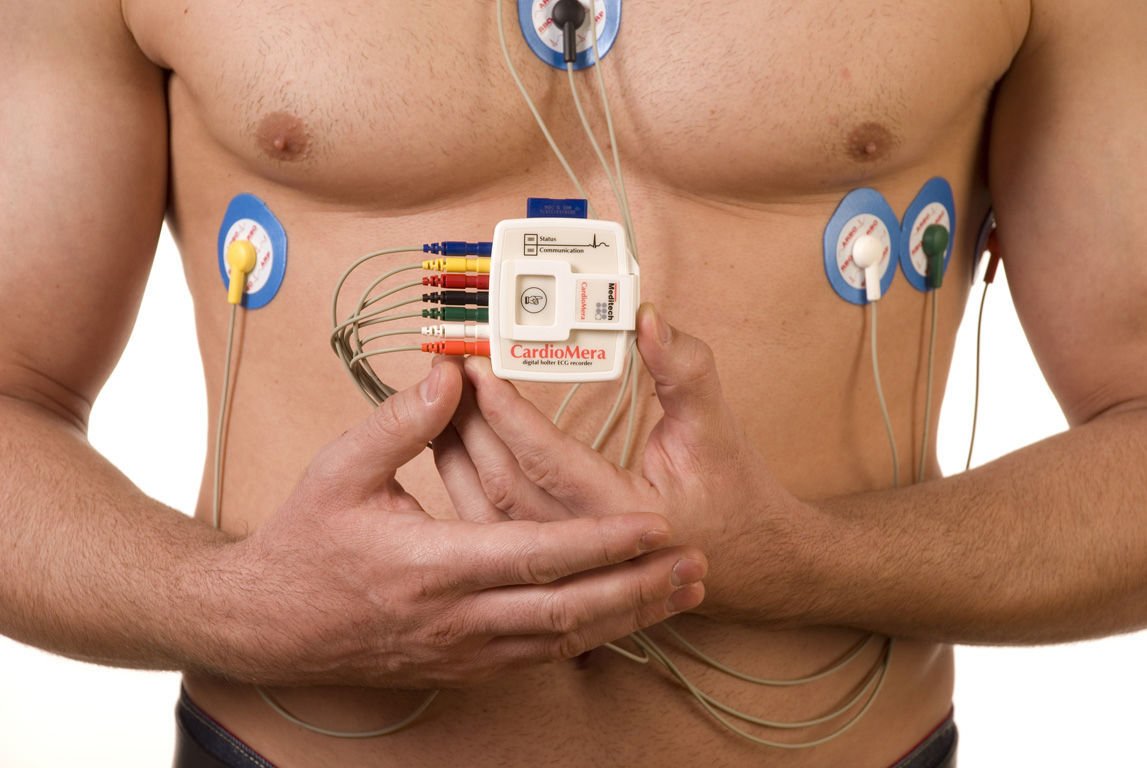Working Time
- Mon - Sat: 9 AM - 9 PM
Sun : 9 AM - 2 PM
Contact Info
-
Phone: 9990507691
9811892896 - sabinsan24@yahoo.co.in
Ask the Experts
Holter

Holter is a device that is used to record the heartbeat and diagnose the abnormal signs of the heart. The Holter machines attach to the body in the same way as a standard ECG. This machine is very small in comparison to the traditional ECG machine. The doctor may recommend Holter monitoring for 12, 24, or 48 hours of heart activity according to the symptoms.
It is used when normal ECG’s snapshots are not sufficient to analyze the heart’s electrical activities, then the doctor recommended 24-hours Holter monitoring. Holter monitor is a battery-powered device that you can wear and do your normal activities, but you have to keep the electrode and device dry.
WHY IS IT DONE?
Holter is used to evaluating the heartbeat over time while you are doing your normal activity. ECG is also used to analyze the heart electrical activity but irregular rhythms and cardiac symptoms may come and go. Monitoring for a long time is necessary to analyze and diagnose the problem. This monitoring helps the doctor to see your heart functions on a long-term basis. Your doctor recommends this test to check:
- Your medicines are working properly or not.
- Why you have symptoms like weakness, dizziness, chest pain, shortness of the breath, racing and skipping of the heartbeat.
- Your heart is getting enough oxygen or not.
How is it done?
The Holter is a painless and non-invasive procedure. Holter monitor is very small in size; it is just a little larger than a deck of playing cards. Your doctor may ask you to wear that machine in which several leads are connected that are connected to the electrodes. The doctor applies the gel to that area where electrodes are placed on the body. This process records the heart activity through the wire and the Holter monitor.
You need to wear the small pouch that holds the monitor around the neck or on the waist or in the pocket. You need to take care that the monitor is always close to your body during the testing time, just to ensure the readings are accurate. Your doctor will also tell you how to reattach the electrode if it loses or fall off. Your doctor may also shave that area before securing the electrodes if you have hair in that area.
Tips to remember:
- Avoid bathing, swimming or showering, if you wear the Holter monitor.
- Make sure your monitor, electrode, and leads should be dry always.
- Check your electrodes in a few hours because the loose electrode can make the readings inaccurate.
- Avoid going in the areas of high voltage.
- Avoid using microwaves, cell phones, electric toothbrushes, and razors during the test period.
- Tell your doctors, if you have any allergy from the glues and adhesives.

